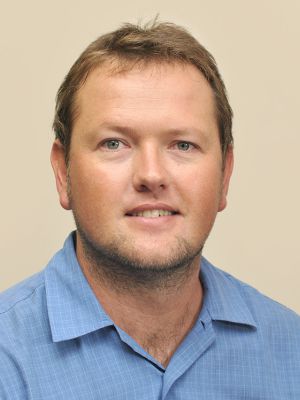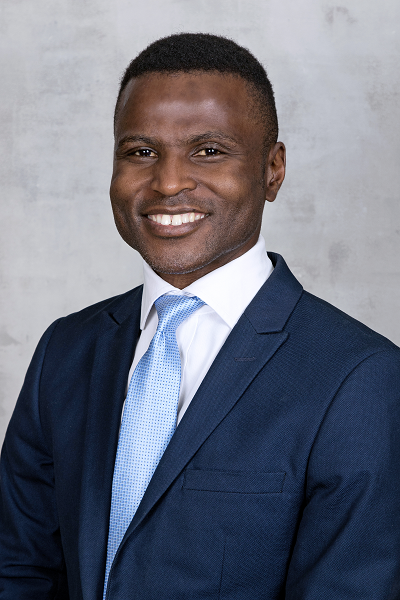The British Council in South Africa has selected two innovators of the North-West University (NWU) to participate in its inaugural Strengthening Commercialisation Skills (SCS) programme. This programme is directed towards the fields of humanities, arts and social sciences (HASS).
Dr Mesuli Mbanjwa, a commercialisation manager at the NWU’s Technology Transfer and Innovation Support (TTIS) office, and Prof Henk Louw, an associate professor of Academic Literacy in the Faculty of Education, have been chosen for the programme, which kicked off on 29 November 2022.
The SCS programme consists of five phases, including a one-week residential programme at Oxford University, which is scheduled to take place in February 2023. It also involves training, mentoring and showcase and dissemination workshops and opportunities.
Prof Louw developed an educational software program known as Backchat, an innovation that enables educators such as teachers and academics to provide personalised and effective performance feedback to their learners. The innovation greatly improves the quality of learning. The TTIS office has been providing support to Prof Louw. This includes advice on intellectual property protection, business model development, market assessments and market testing and other services with a goal to make Backchat a commercially viable product. Prof Louw says he is convinced that his participation in the programme will advance his commercialisation and entrepreneurship acumen, which will make him better equipped in the journey of taking his innovation to market.
Dr Mbanjwa says innovations that are generally commercialised from universities largely emanate from research and development in the sciences, technology, engineering, mathematics and medicine (STEMM) fields. The programme aims to strengthen the commercialisation of research outputs from the HASS fields, which are often oriented towards social good. He emphasises that commercialisation in the university context transcends the narrow objective of only making money and is rather about transforming the research into services and products that are useful to society. “It is the next level of research impact,” he says.
“Through the programme, the TTIS office will be bolstered to assist more NWU academics and researchers in the HASS fields, such as Prof Louw, to commercialise more of their research outputs,” says Dr Mbanjwa. He encourages NWU colleagues in the HASS faculties at the NWU to proactively consider opportunities for commercialisation of their research work and to contact the TTIS office for advice and assistance.
“Our nomination of the Backchat project and Prof Louw for the SCS programme is an example of the type of support that the TTIS office provides to NWU innovators. We hope that through the programme Backchat will receive exposure to the potential market and innovation ecosystem in the UK,” he adds.
More about the SCS programme
According to the British Council, the programme builds on the South Africa Innovation Ecosystem mapping report that was commissioned by Universities South Africa’s Entrepreneurship Development in Higher Education (EDHE) programme in 2021.
The report concluded that the South African innovation ecosystem is a rapidly changing landscape with pockets of excellence and good practice, and a huge potential in terms of economic growth through commercialisation activities involving university research.
The British Council says the report also demonstrated that there is a clear need to raise awareness and embrace the commercialisation of HASS research outputs more widely across South African universities. This includes awareness of the generation of impact from traditional knowledge.
The programme is delivered by the British Council in partnership with Oxford’s Global Innovation Consultancy (Oxentia), based in Oxford, United Kingdom.
The long-term aims include the upskilling of academics and technology transfer professionals in the commercialisation of HASS research outputs.
It will also raise awareness about the different possible pathways to generate impact from these disciplines and increase research commercialisation outputs in the sector.
According to the British Council it will unlock new opportunities for collaboration in HASS commercialisation between the United Kingdom and South African universities.

Prof Henk Louw

Dr Mesuli Mbanjwa
